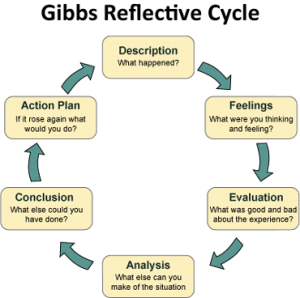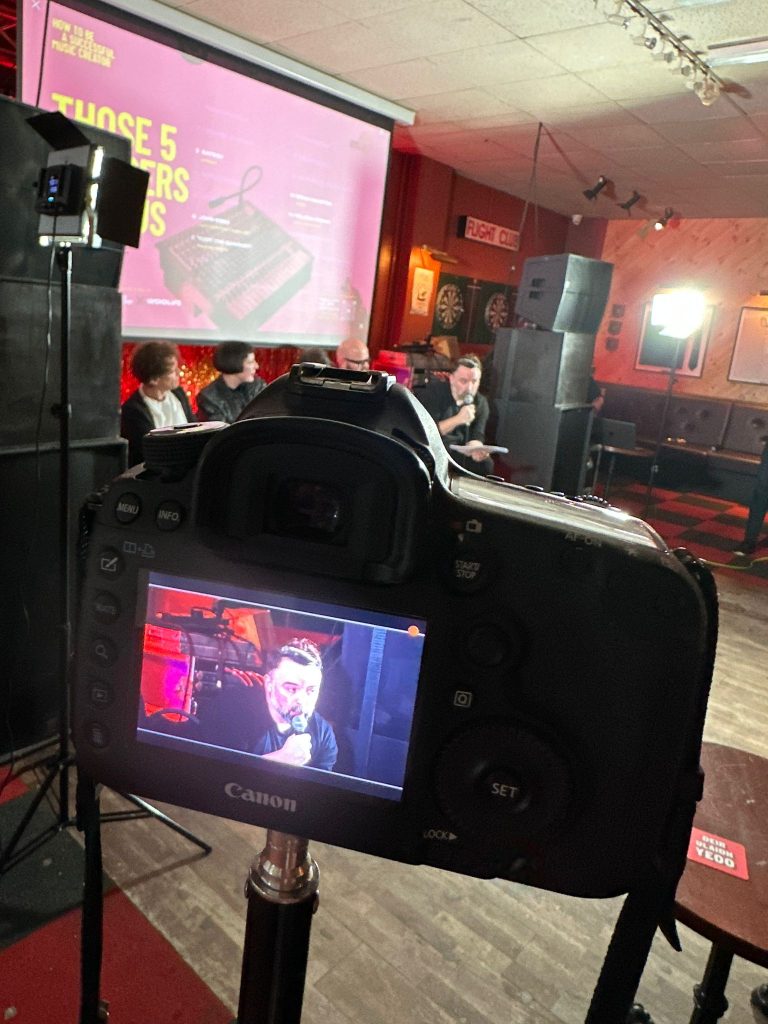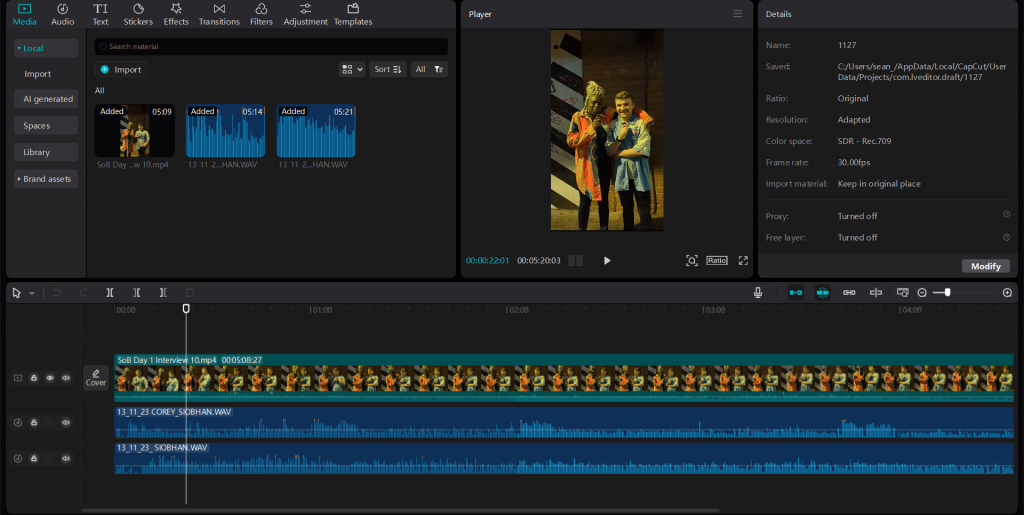AEL3001 Blog Post 2

Description:
One of the most challenging aspects of placement was integrating and balancing placement into my daily routine. Starting my placement with Ekco towards the end of August allowed me to create a general timetable and routine before starting back for first semester, with most classes taking place at the weekend whilst meetings, assignments, and reports could be completed during weekdays. Although, one of the most demanding weeks came during mid-November as we hosted and sponsored three Sound of Belfast events with Woolvs, Ecko’s multimedia branch, along with organising and hosting an online class with the Actor’s Community, Ecko’s film industry branch.
“Perhaps the most important word related to success of any kind is clarity. Successful people are very clear about who they are and what they want, in every area of their lives. In addition to written goals, successful people have written plans of action that they follow every day.”
Tracy, 2014, 5.

Opening on Monday the 13th of November, our first event of the week was sponsoring the Roots & Visions Exhibition, along with hosting Woolvs’ ‘How to be a successful music creator’ the following evening. My role centred around filming and interviewing the attending artists before editing the material for the company’s social media accounts. In preparation for the events the week prior, I began my 1st blogpost, due on Friday the 17th of November, to give myself as much leeway as possible for the coming week. However, with my first semester classes often running into the evening, and events running for 5/6 hours until 10pm, I was working under various time constraints regardless.
Having no classes or work to prepare for the event on Wednesday, allowed me to schedule a start on editing the interviews from the previous days whilst any free time was given to my blogpost. After attending the NI Music Awards that night, I was able to continue my blogpost and made a start on my practice portfolio, due in the following Friday. My role and work as President of the film society also came to clash with my already swamped schedule. Booked in for Monday the 20th of January, I was mostly unavailable the help the society organise or plan the event as I had prioritised completing my tasks for placements and my assignments for my course.

On Friday I had a touchpoint meeting with the Ecko crew to reflect the positives and negatives of the events whilst also discussing how to improve the company’s marketing and social media strategies. Having submitted my blogpost the day before, the weekend allowed me to get up to speed with my portfolio and society work, whilst my editing tasks for Woolvs and the Actor’s Community could be chipped away at in my spare time. To conclude the week, I attended actor Andrew Rothney’s AC class and was tasked with a handful of research and takeaway tasks. Although the tasks were not the most difficult, they were tedious and time consuming, leaving me little to no time to schedule in last minute plans for our society’s event the following evening.
“By and large, the average person doesn’t like change because change tends to disrupt one’s comfort zones. It appears that the ‘known’, no matter how bad, feels like a safer bet than the unknown.”
Seaward, 2017, 3.
Thoughts & Feelings:
Despite the engrossed schedule, I was very appreciative and relieved to have completed all my tasks and assignments before their deadlines, and to a predominantly high standard. Initially I thought that starting my assignments and preparation for the events one week prior provided myself with plenty of leeway for completion and scheduling. However, as the events and the tasks that came with ran a lot longer than anticipated, I quickly realised I would need to delegate the undemanding work for the more immediate.
The planning, scheduling, and advertising leading up to the events was a very tedious process but thankfully not the most mentally challenging. In spite of setting and eventually achieving my long-term goals, the initial shock and stress of the workload led me to recreating a more self-disciplined binary routine, developing short term tasks to build towards completing the long term, and prioritising deadlines in order of assignments for classes and projects, tasks and events for placement, and then film society events.
“There are some areas of your work where “slow thinking” is absolutely essential for you to perform at your best.”
Tracy, 2014,.3.
I feel as though, despite the exasperation and stress, I was able to remain confident and committed to completing the monotonous tasks. Since beginning placement in August, I have been able to build a reputation for getting work in on time and to a high standard, reorganising my routine to adhere to the obstacles faced that week provided me with incentives to uphold that reputation.
Positive & Negative Evaluation:
Overall, I am highly satisfied with completing all the work needed, although I am very unhappy with how ineffective my initial schedule was and the repercussions for lacking enough organisation. The most positive takeaway links back to my confidence in my work, reflecting the consistent high standard delivered. On the other hand, a week of planning, scheduling, and prep work was needed for placement, coursework, and society work each.
“The human brain cannot actually process two opposing thoughts simultaneously, without loss of quality on both streams of thought. Instead, we do better when we handle mental tasks singly and sequentially.”
Mackenzie & Nickerson, 2009, 5.

I also feel as though a large amount of the stress I endured was self-inflicted due to my inability to say no, leading to an overbearing amount of compulsory and exhorted optional work. Any attempts of multitasking the array of work ultimately ended in procrastination and trepidation. Eventually after putting surpassing my scepticism and doubt aside, I created a temporary crisis management routine to cut out disorganisation and distractions, focusing solely immediate tasks at hand.
Analysis:
Maintaining a balanced routine was made more difficult through the technical difficulties experienced, such as transferring large files, too low quality of audio/footage, and frustration with the editing software. However, the delegation of work after the event between the interns and the team leaders lifted a large weight off my shoulders whilst also allowing me to get back into my daily routine. Having set the bar high earlier, it was very difficult to keep the same consistency and quality of work with a constantly changing routine.
As a result of the type of work I do for the Film Society, I was able to use my organizational skills and knowledge to help organise, plan, and advertise the venues for our events, although, when delegating the less important and immediate tasks, my work with the society suffered in expense. The interviews which we did during the events felt like a breath of fresh air in comparison to the work we had grown accustomed to. After, when it came to tackling multiple tasks simultaneously, it was very difficult to find motivation to edit the interviews whilst also working on the more important academic assignments.
Conclusion:
In hindsight, I know I could and should have started preparation and work weeks in advance of the elaborate period. I was unaware of how busy my schedule could get until every task piled up on one another. I didn’t allow myself enough time to give myself an incentive to build upon and take each task in my own time, sacrificing my stress management in the process. Thankfully, despite the chaos and initial overwhelm of work, push came to shove, and I was able to submit all my work before their deadlines with the results suffering very little.
Action Plan on if the scenario were to occur again:
Moving forward, the main key points I have implemented is creating a more effective schedule which provides leeway for delegating tasks should I need to, maintaining boundaries so there’s ways to motivate myself, and to use meetings effectively, setting short and long-term goals to prevent that level of stress. Prioritising different assignments to focus on one task at a time will greatly benefit me along with the quality and consistency of my work.
Bibliography:
- Tracy, Brian. 2014. Time Management. 1st ed. Nashville: American Management Association. Print.
- Mackenzie, A. and Nickerson, P., 2009. The time trap: The classic book on time management. Amacom.
- Seaward, B.L., 2017. Managing stress. Jones & Bartlett Learning.
Blog Link:
Restructuring and Rescheduling: Integrating placement into daily routine